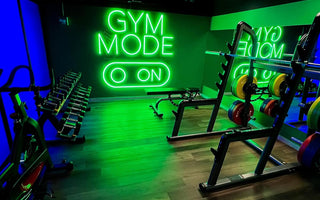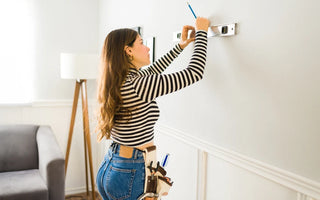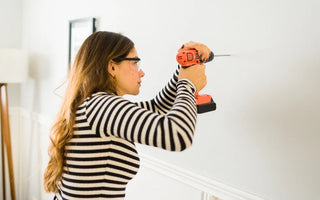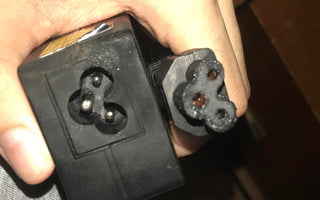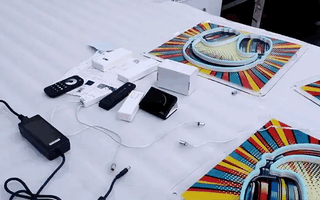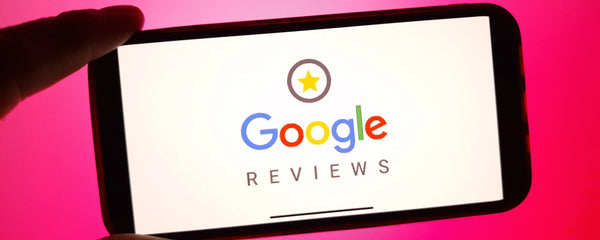Introduction
Neon signs are a great way to add a pop of color and personality to any space. Whether you've just purchased a new neon sign for your business, home, or event, or you're looking to relocate an existing sign, knowing how to hang it properly is essential.
Proper installation not only ensures that your sign is aesthetically pleasing, but also that it is mounted safely and securely. This guide will walk you through the steps for hanging LED neon signs, covering the necessary tools, safety precautions, and best practices for reliable installation.

Tools and materials needed
Before you begin, gather the necessary tools and materials. The specific tools will depend on whether you're hanging a traditional neon sign or an LED neon sign.

-
Screws and wall/ceiling anchors
-
Tape measure
-
Pencil
-
Spirit level
-
Drill with suitable drill bits
-
Screwdriver
-
Mounting clips or brackets (if required)
Safety Precautions
Hanging a neon sign involves handling electrical components and, in the case of traditional neon signs, fragile glass tubes. Follow these safety precautions to avoid accidents:
-
Turn off the power : Before handling the sign, make sure it is unplugged and the power is off. This prevents any electrical accidents during installation.
-
Wear protective gear : For traditional neon signs, wear protective gloves to avoid cuts from the glass tubes. Safety glasses are also recommended to protect your eyes.
-
Check the weight : Make sure the wall or surface where you plan to hang the sign can support its weight. For heavier signs, use sturdy hooks, brackets, or anchors to secure them.
-
Avoid moisture : If you are hanging the sign in an area that may be exposed to moisture, such as an outdoor area or a bathroom, make sure the sign is suitable for these environments and that all electrical components are properly insulated.
Step-by-step guide to hanging a neon sign

Choose the location
Step 1: Choose the ideal location
Select the best location to hang your neon sign, considering visibility, height, and the background where it will be displayed. Make sure the location allows easy access to a power source, especially if the sign will be permanently plugged in. If necessary, place the sign near hidden outlets or manage the cables discreetly.
Step 2: Plan access to food
Ensure power adapters and LED controllers are concealed to maintain a clean appearance. Ideal locations to hide these components include ceiling cavities, secure enclosures, or other areas that are out of the way for safety and cleanliness.
Step 3: Position for maximum impact
For optimal visibility, place the sign at eye level or slightly above. This makes the sign easily visible while enhancing its visual impact in the space.
Measure and mark
Step 4: Measure the installation location
Use a tape measure to determine the exact location where you want to hang your neon sign. Ensure the chosen position is at the desired height and visibility. For larger signs, using a spirit level at this stage will ensure a straight and professional installation.
Step 5: Mark the Mount Points
Place the mounting bracket on the measured location and use it as a template. Use a pencil to mark the locations where the screws or mounting hardware will be attached. Double-check the markings to ensure alignment and accuracy before proceeding.
Drill the holes for mounting
Step 6: Prepare for heavy signs or difficult surfaces
If your neon sign is heavy or you're mounting it on a sturdy material like brick or concrete, you'll need to drill holes for wall anchors. These anchors provide additional support, ensuring the sign stays securely in place.
Step 7: Drill the holes
Using a drill, create holes at the points marked in step 5. For traditional neon signs, ensure the holes match the mounting brackets or hooks. For LED neon signs, drill holes for the mounting clips or brackets if adhesive strips are not being used. Check alignment before drilling to ensure the sign will be straight.
Install the anchors or hooks
Step 8: Insert the wall or ceiling anchors
If necessary, insert wall or ceiling anchors into the drilled holes. This step is crucial for heavier signs or when mounting on surfaces like placo, brick, or concrete, as the anchors provide additional support and prevent the hardware from loosening over time.
Step 9: Attach the mounting hardware
Screw the hooks, brackets, or mounting hardware into the anchors or directly into the wall. Make sure everything is securely fastened to support the weight of your neon sign. Check that the hardware is level and firmly attached before proceeding to the final step of installation.
Mount the neon sign
Step 10: Position the LED neon sign on the acrylic panel
Carefully lift the mounted LED neon sign onto the acrylic panel. Align the pre-drilled holes at the top, usually on the left and right sides, with the installed hooks or brackets.
Step 11: Secure the sign
Once aligned, ensure the sign is level and balanced. Depending on your setup, the sign can be mounted against a wall, hung freely, or placed behind a window. Make any necessary adjustments to ensure stability and proper alignment.
Connect to power supply
Step 12: Connect the LED sign and controller to a power source
Once the LED neon sign is securely mounted, connect it to the LED controller. Make sure the controller is properly connected to the sign and the power source. Then, plug the sign into a standard outlet. Check that all connections are secure and place the power adapter out of sight.
Step 13: Pair the remote and store the controller
Before storing the LED controller, pair the remote control with the sign according to the manufacturer's instructions. Once paired and tested, store the controller in a secure location, such as a ceiling cavity, a secure enclosure, or an area out of the way. Ensure all cables are neatly organized and hidden to complete the installation.
Test the sign
Step 14: Test the sign
Turn on the power to test your LED neon sign. Check that it lights up evenly, without flickering or dimming. Inspect the sign for any brightness or alignment issues. If everything is in order, your sign is ready to shine! Enjoy your new installation!

Common mistakes to avoid
-
Overloading wall anchors : Ensure that the wall anchors or mounting hardware used can support the weight of the sign. Using the wrong type or size anchor can cause the sign to fall and cause potential damage.
-
Poor placement : Measure and mark locations accurately. If the sign isn't level, it can look unprofessional and could even stress the mounting hardware, increasing the risk of it loosening over time.
-
Ignoring the location of the power source : Make sure the sign's power cord can reach the nearest outlet without the need for an extension cord, which can be unsightly or create a tripping hazard.
-
Insufficient insulation : For outdoor installations, ensure that all electrical components are adequately insulated and weatherproof to prevent damage from moisture or temperature changes.

Conclusion
Hanging a neon LED sign is a simple process when you take the time to prepare properly and follow the necessary safety precautions. By ensuring the sign is securely mounted, aligned, and properly connected to power, you can confidently display your custom neon LED sign in any space. Whether mounted on the wall, hanging freely, or placed behind a display case, following these steps will ensure your sign not only looks great, but is also safe and durable for years to come.




